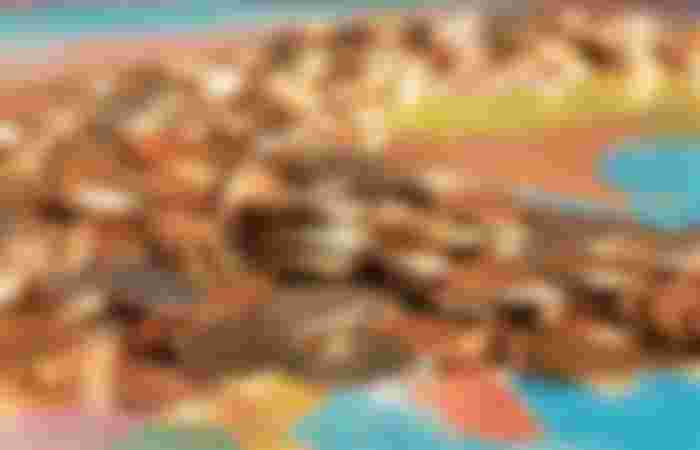Inflation, the real explanation
Mentioned to the point where we don't know what It is.
Let's be honest. In most countries we're facing the reality of inflation in our day to day, with prices rising and resources becoming more scarce, yet people don't do much to inform themselves about the particular situations of these and I don't blame them, as the causes that influence inflation are greatly complex. However, the first thing that politics will use in order to gain popularity amongst people is that of using inflation and oversimplifying It so It serves them as a "Us against them" message to gain more votes. . That's why in this article I will try to explain the best that I can what these terms are, highlighting how these can be both positive and negative under certain conditions and making you more aware of the danger they ensue. Let's begin:

What is inflation?
To understand how this economic process happens we have to take into account the influence of offer and demand in the finances of a country. To give a quick definition to each one, Offer is the capacity to produce new goods and offer them to the client and demand is how many people want those goods and how much they are willing to pay, while the relation between these two is what keeps the value at a reasonable price when It is functioning correctly. Well, what happens with inflation is that the relation between these two gets into a desequilibrium, where due to a lack of resources or a mismanagement of them the price of products rise while the value of the money to acquire these diminishes. Long story short, offer is greatly decreased while demand is at Its peak, and because of this the customer is forced to pay more for the product.
Upon reading this you might think that inflation affects only employees and people of low resources as the owners of businesses don't suffer from the consequences of It. However, this phenomenon affects the whole array of a population. When prices increase in all industries that means that even producer goods become more expensive, which forces companies to buy these and have two options: To either increase the price of the product in order to make the revenue required to buy raw materials or to cut expenses in parts of the process and reduce their payroll, affecting the quality of the product, . If inflation gets to a point where people can no longer afford to buy products from a company, sales will steadily decrease and they will leave It with no other choice than to file for bankruptcy, leaving another group of unhappy faces.

What are Its causes?
Inflation can have a lot of causes that influence on why everything goes up, though the most common can be found in:
Demand-Pull Inflation
This is where prices increase due to a demand that's higher than the market's ability to produce the goods required, thus resulting in an increase of how much products are worth.
Cost-Push Inflation
In here, when the cost of materials and salaries increase for the providers, so do the prices of goods for the consumers. This can even be a direct cause of Demand-Pull inflation, resulting in a loop that is constantly feeding Itself back.
Money supply increase
This happens when the amount of money available in circulation increases faster than the rate production of goods, which in return causes demand-pull inflation because there's more money to buy lesser products.
Devaluation
This simple concept is the result of a country national currency losing Its value against that of other nations, making the goods and services they export cheaper while the price to import foreign goods increases, resulting in inflation.
Along with these causes there can be another factors that generate sudden increases in inflation such as decisions or measures taken by the government (For example regulations in prices, taxing or taking over a specific industry), though the most common are to be seen in demand-pull inflation and cost-push inflation.

What can governments and citizens do about It?
While fixing inflation doesn't fall in the hands of the citizens, the best thing these can do when faced with this situation is to back up their wealth by either buying tangible assets or other currencies with a higher and more stable value, thus resisting the effects of increasing prices in national money.
In the case of governments, there are a lot of operations that these use in order to control inflation, as reducing It completely can bring an increase in the real value of debt and with this recessions in a phenomenon known as deflation. Some of the operations tried before are really effective in combating the increase of prices and others only add up wood to the flames such as price controls, which by setting the price of a determined good at a steady value only makes It more scarce as producers won't get enough revenue to reinvest into materials and will only create further inflation. However, solutions can be found through strategies that have worked in the past such as:
Contractionary monetary policies
This is especially effective in economies where inflation is caused by increases in the money supply, where the interest rate is raised (Which is basically the interest people and business are charged whenever capital is borrowed) this makes economic growth slower (Which in this case is not a good thing), making credit more expensive and thus reducing spending.
Federal Fund Rate
Same as in the contractionary monetary policies where the interests over the credit provided to individuals by banks had an increase, with federal fund rates, the rate at which banks lend each other money is raised, resulting in an increase in rates of loans and a reduction of the money supply.
Reserve requirements
Here the amount of money that banks were legally required to keep to cover withdrawals is controlled, making these financial entities hold back more money and thus lending lesser amounts to consumers, which resulted in reductions on inflation rates.

There are many other methods which governments employ to keep inflation controlled, though most of the time they always revolve around the same thing, decreasing the money supply, number of loans and spending in order to reduce increases in demand and thus in the prices of goods.
I hope that this article could have explained in a good enough detail what inflation really is, what Its causes are and how to combat It, all so you can have a better understanding of what might be going in the world right now and developing your own conclussions upon It, making you much more aware of the options you have. Thank you for your support and good luck!



